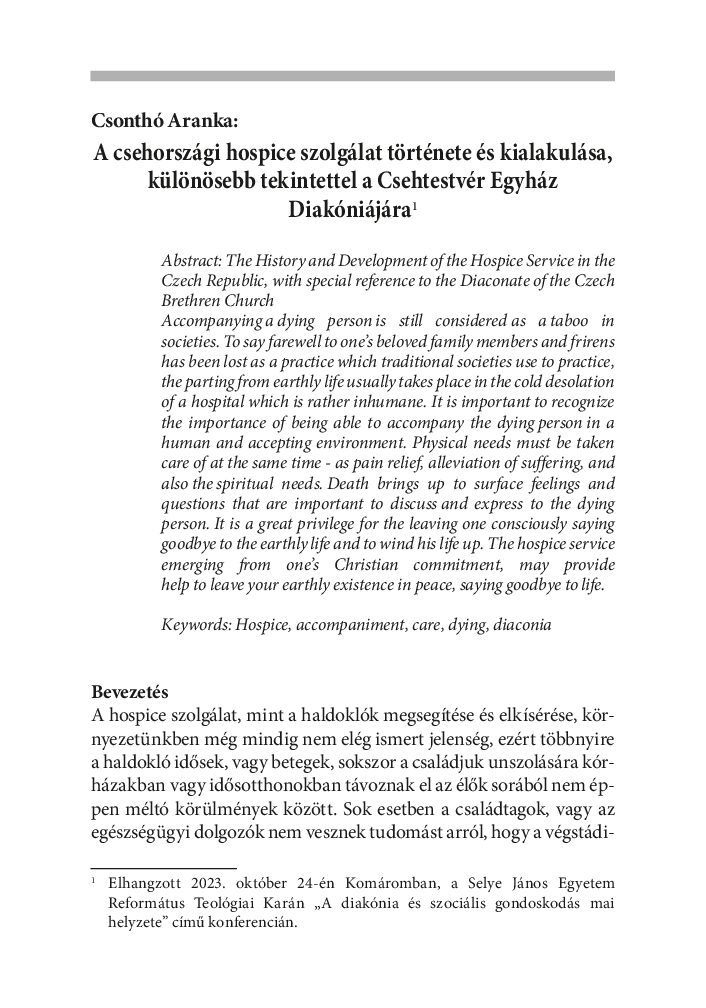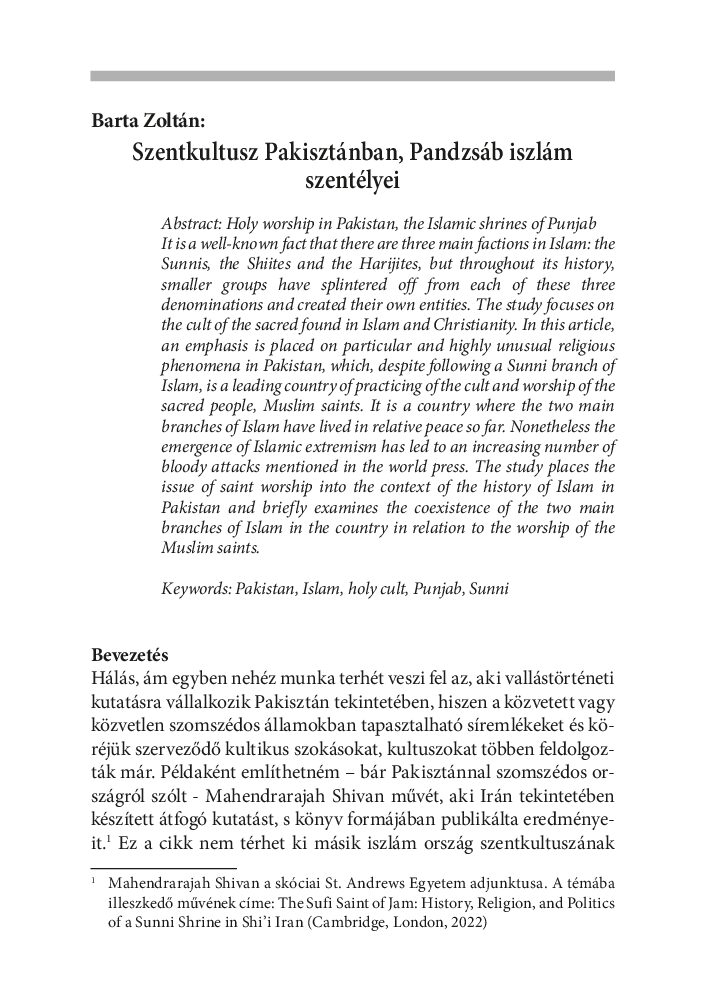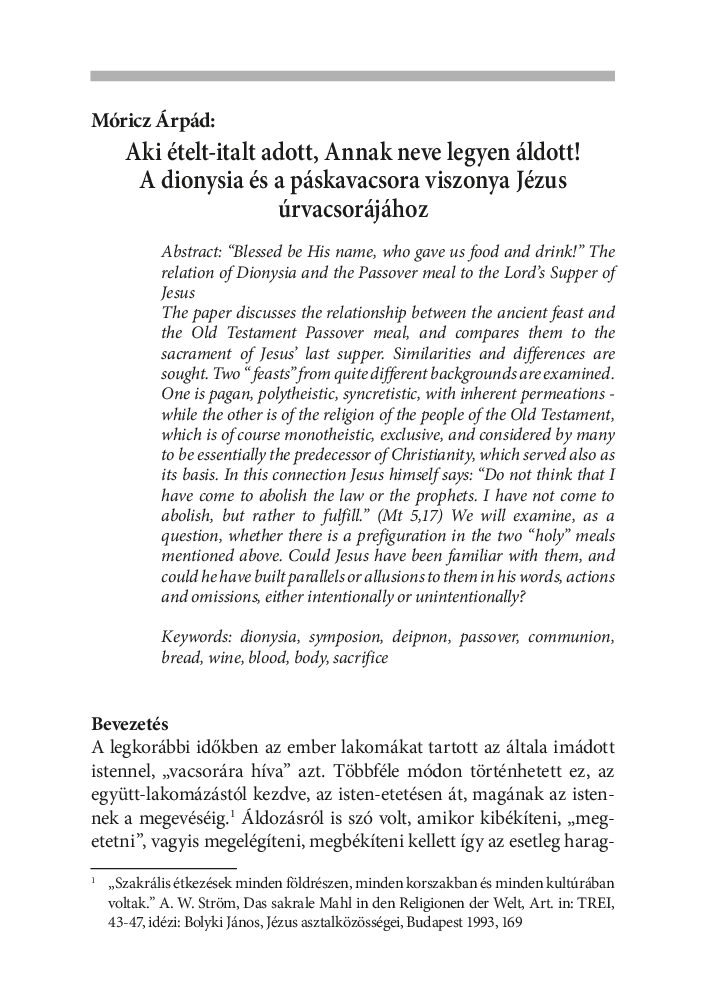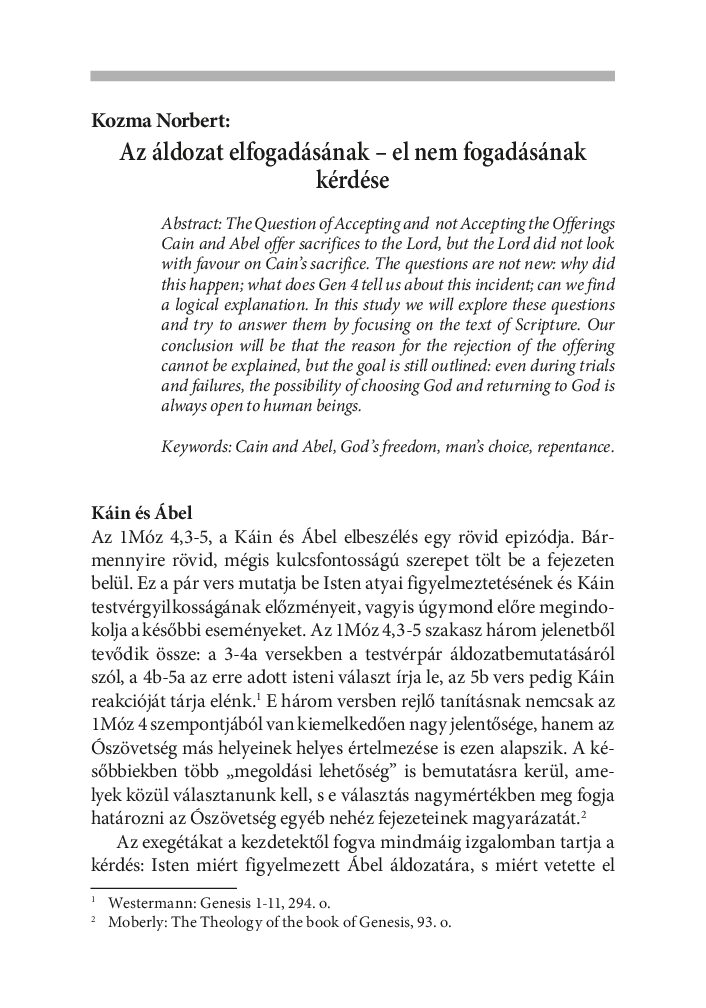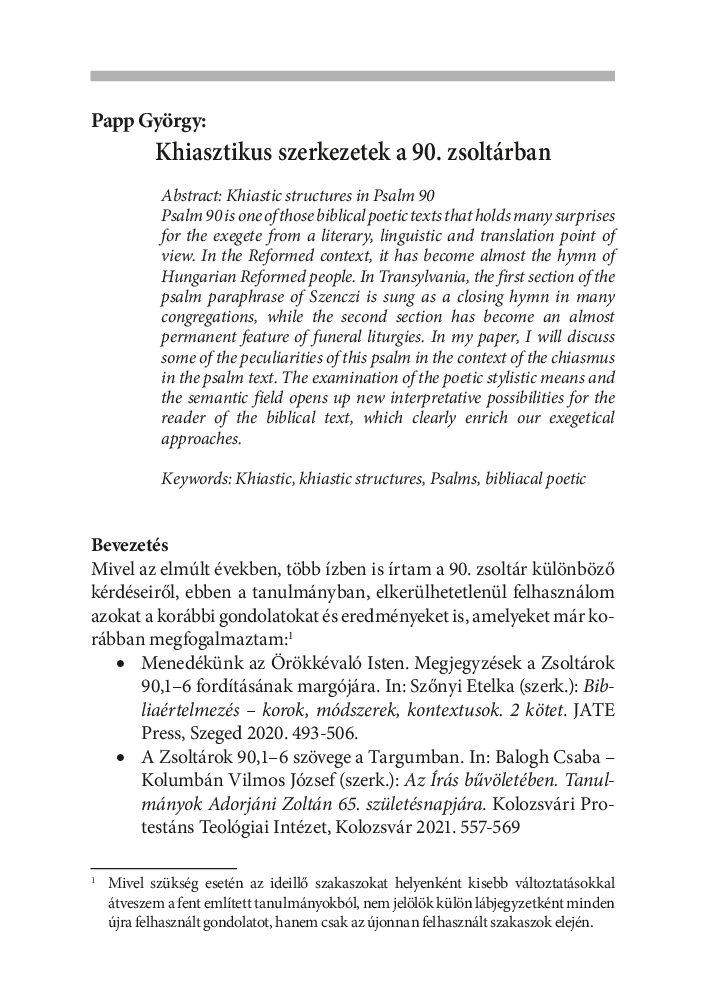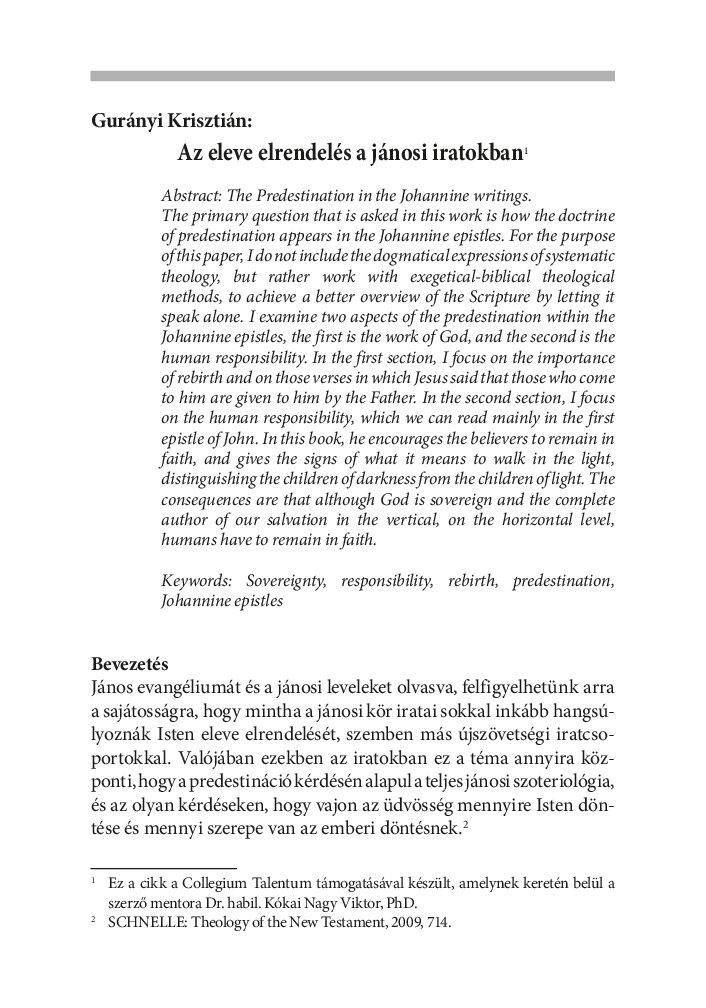The Treaty of Trianon (1920) completely changed and disrupted the lives of Hungarians. Millions of Hungarian-speaking people were forced to live in newly created countries such as Yugoslavia or Czechoslovakia that oppressed German, Hungarian, Ruthenian and Jewish minorities. The focus is now on Hungarian minority. Owing to the Treaty, national borders were artificially created. Therefore, this unexpected event which changed millions of Hungarians life overnight, can be presented from several angles. On the one hand, from the point of view of the Hungarians who remained outside the borders, and on the other hand, from the point of view of the inhabitants of the remaining newly formed country with different ethnic leadership, that still remained to them, the so-called motherland where their ancestors lived for centuries. We can look at what this unjust and brutal event meant for our church from a very particular aspect, that is, in the light of the official documents of the Transdanubian Reformed Church District. The historical data reveals the shock, anger, search for a solution, hope of the ousted
Hungarian Reformed minority in a ‘ foreign’ country.
Keywords: Trianon, Transdanubian Reformed Church District, church organisation, repentance, search for a solution, hope, peacetreaty

